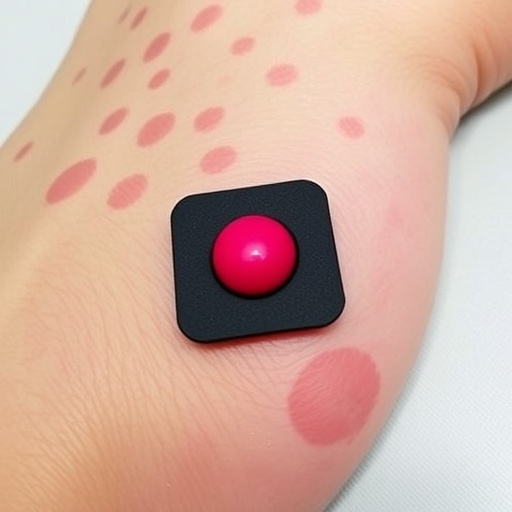Repeated exposure to a common anesthesia drug early in life results in visual recognition memory impairment, which emerges after the first year of life and may persist long-term, according to a study from the Icahn School of Medicine at Mount Sinai and published online May 31 in the British Journal of Anaesthesia.
Each year, approximately a million children under the age of four undergo surgery with general anesthesia, according to the U.S. Food and Drug Administration (FDA). Experimental studies in animals have shown that exposure to general anesthesia in infancy can cause loss of cells in the central nervous system and long-term impairments in neurocognitive function. Some human epidemiological studies have shown that children who undergo more than one operation under general anesthesia before they are four years old are at a greater risk of learning disability and other cognitive impairments.
The Mount Sinai study is among the first to address the question of whether repeated postnatal anesthesia exposure, in and of itself, results in memory impairment in a highly translationally relevant rhesus monkey model. Rhesus monkeys at birth are at a stage of neurodevelopment that is more similar to that of human infants than are neonatal rodents; with respect to brain growth, a six-week-old rhesus monkey corresponds to a human 6 to 12 months of age. Because these kinds of controlled studies cannot be carried out in humans, it is essential to use a comparable animal model to discover if anesthesia is affecting the brain. Unlike previous research, the study was conducted in the absence of a surgical procedure, co-morbidities that may necessitate surgical intervention, or the psychological stress associated with illness.
"The major strength of this study is its ability to separate anesthesia exposure from surgical procedures, which is a potential complication in the studies conducted in children," says Mark Baxter, PhD, professor in the Departments of Neuroscience and Anesthesiology at the Icahn School of Medicine at Mount Sinai. "Our results confirm that multiple anesthesia exposures alone result in memory impairment in a highly translational animal model. Interestingly, the anesthesia-exposed group had normal visual memory at six months of age. Visual memory impairment didn't emerge until the second year of life, corresponding roughly to the age of three to six years old in humans."
Specifically, the study team exposed 10 non-human primate subjects to a common pediatric anesthetic called sevoflurane for four hours, the length of time required for a significant surgical procedure in humans. They were exposed to the anesthetic at postnatal day 7 and then again two and four weeks later, because human data indicate that repeated anesthesia results in a greater risk of cognitive disability relative to a single anesthetic exposure.
Researchers evaluated the visual recognition memory of exposed subjects compared with that of healthy controls at 6-10 months of age, 12-18 months of age and again at 24-30 months of age using the visual paired comparison test, which measures memory by assessing preference for looking at a new image over a previously viewed one. They found the anesthesia-exposed infants displayed no memory impairment when tested at 6-10 months, but demonstrated significant memory impairment (reduced time looking at the novel image) after the first year of life compared with the control group.
"Our findings are consistent with epidemiological studies that show increased risk of long-term cognitive impairments after repeated exposure to anesthesia in infancy and early childhood, but perhaps most interestingly, we found that these deficits may emerge at later developmental stages, even when memory performance is unaffected earlier in development," says Dr. Baxter. "Our goal is to continue this work to test possible interventions that can prevent long-term cognitive impairments after early anesthesia exposure."
These findings are part of a larger longitudinal study, and researchers at the Icahn School of Medicine at Mount Sinai and the Yerkes National Primate Research Center will continue to follow these study subjects behaviorally to fully characterize the length of time that cognitive and emotional changes persist and whether they resolve over time.
In December 2016, the FDA placed a warning on common anesthetic/sedative drugs, including sevoflurane, for children under three years of age receiving prolonged (more than three hours) or repeated anesthesia, saying that this may cause a risk of cognitive impairment.
This primate model may be used be researchers for future studies to develop a new anesthetic agent or prophylactic treatment to counteract the impact of anesthesia on behavior in children. The findings also suggest that additional work is required to identify the mechanisms by which anesthetics may cause long-term changes in central nervous system function that impact behavior.
###
The National Institute of Child Health and Human Development and the National Institutes of Health Office of the Director supported this research.
About the Mount Sinai Health System
The Mount Sinai Health System is an integrated health system committed to providing distinguished care, conducting transformative research, and advancing biomedical education. Structured around seven hospital campuses and a single medical school, the Health System has an extensive ambulatory network and a range of inpatient and outpatient services–from community-based facilities to tertiary and quaternary care.
The System includes approximately 7,100 primary and specialty care physicians; 12 joint-venture ambulatory surgery centers; more than 140 ambulatory practices throughout the five boroughs of New York City, Westchester, Long Island, and Florida; and 31 affiliated community health centers. Physicians are affiliated with the renowned Icahn School of Medicine at Mount Sinai, which is ranked among the highest in the nation in National Institutes of Health funding per investigator. The Mount Sinai Hospital is in the "Honor Roll" of best hospitals in America, ranked No. 15 nationally in the 2016-2017 "Best Hospitals" issue of U.S. News & World Report. The Mount Sinai Hospital is also ranked as one of the nation's top 20 hospitals in Geriatrics, Gastroenterology/GI Surgery, Cardiology/Heart Surgery, Diabetes/Endocrinology, Nephrology, Neurology/Neurosurgery, and Ear, Nose & Throat, and is in the top 50 in four other specialties. New York Eye and Ear Infirmary of Mount Sinai is ranked No. 10 nationally for Ophthalmology, while Mount Sinai Beth Israel, Mount Sinai St. Luke's, and Mount Sinai West are ranked regionally. Mount Sinai's Kravis Children's Hospital is ranked in seven out of ten pediatric specialties by U.S. News & World Report in "Best Children's Hospitals."
For more information, visit http://www.mountsinai.org/, or find Mount Sinai on Facebook, Twitter and YouTube.
Media Contact
Elizabeth Dowling
[email protected]
212-241-9200
@mountsinainyc
http://www.mountsinai.org
############
Story Source: Materials provided by Scienmag




